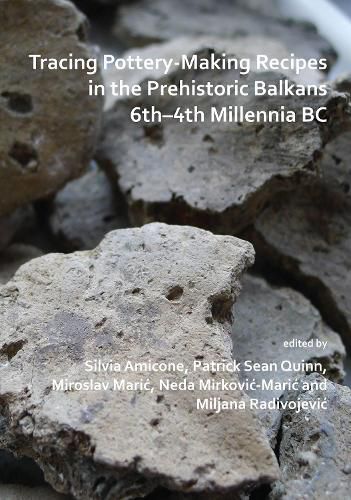Readings Newsletter
Become a Readings Member to make your shopping experience even easier.
Sign in or sign up for free!
You’re not far away from qualifying for FREE standard shipping within Australia
You’ve qualified for FREE standard shipping within Australia
The cart is loading…






Tracing Pottery-Making Recipes in the Prehistoric Balkans 6th-4th Millennia BC is a collection of twelve chapters that capture the variety of current archaeological, ethnographic, experimental and scientific studies on Balkan prehistoric ceramic production, distribution and use. The Balkans is a culturally rich area at the present day as it was in the past. Pottery and other ceramics represent an ideal tool with which to examine this diversity and interpret its human and environmental origins. Consequently, Balkan ceramic studies is an emerging field within archaeology that serves as a testing ground for theories on topics such as technological know-how, innovation, craft tradition, cultural transmission, interaction, trade and exchange. This book brings together diverse studies by leading researchers and upcoming scholars on material from numerous Balkan countries and chronological periods that tackle these and other topics for the first time. It is a valuable resource for anyone working on Balkan archaeology and also of interest to those working on archaeological pottery from other parts of the world.
$9.00 standard shipping within Australia
FREE standard shipping within Australia for orders over $100.00
Express & International shipping calculated at checkout
Tracing Pottery-Making Recipes in the Prehistoric Balkans 6th-4th Millennia BC is a collection of twelve chapters that capture the variety of current archaeological, ethnographic, experimental and scientific studies on Balkan prehistoric ceramic production, distribution and use. The Balkans is a culturally rich area at the present day as it was in the past. Pottery and other ceramics represent an ideal tool with which to examine this diversity and interpret its human and environmental origins. Consequently, Balkan ceramic studies is an emerging field within archaeology that serves as a testing ground for theories on topics such as technological know-how, innovation, craft tradition, cultural transmission, interaction, trade and exchange. This book brings together diverse studies by leading researchers and upcoming scholars on material from numerous Balkan countries and chronological periods that tackle these and other topics for the first time. It is a valuable resource for anyone working on Balkan archaeology and also of interest to those working on archaeological pottery from other parts of the world.